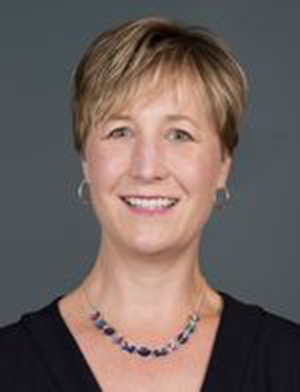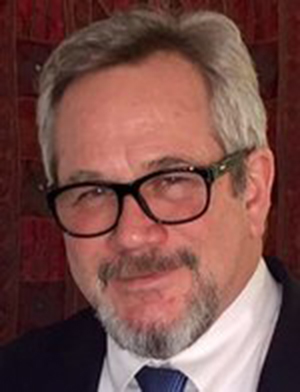
Michele Waslin
The number of international students enrolling for the first time at U.S. colleges and universities declined by three percent for the 2016-17 academic year, the U.S. State Department reported. Two George Mason University experts say the cause might be the Trump administration’s stricter immigration policies.
Professor James Witte, director of Mason’s Institute for Immigration Research, and Michele Waslin, the institute’s program coordinator, say the continued tightening of immigration controls could cause a brain drain in this country that would have serious repercussions in terms of scientific advancement.
“Any policy that impacts immigrants is likely to have an impact on immigrant science,” Waslin said. “The fact that the Trump administration has slashed refugee numbers means, are we leaving out the next Einstein or the next Nobel laureate or scientist?”
“We’re a knowledge economy,” Witte said. “But we don’t have a monopoly on that.”
Witte and Waslin back their assertions through their study “Immigrants to America and Their Contributions to Science: An Overview of Recent Data and Policy.”
The study shows how the share of PhDs in STEM-related fields—science, technology, engineering, and mathematics—obtained at U.S. institutions by temporary visa holders grew from 31 to 43 percent from 1986 through 2016.
It also shows that although none of the six 2016 Nobel Prize winners in the sciences were born in the United States, five were employed at U.S. universities early in their careers or received doctoral or post-doctoral training in the United States.
Foreign-born U.S. Nobel laureates constituted a record 22 percent of Nobel winners from 2010 to 2017, and 33 of 85 American Nobel winners since 2000 have been immigrants, the American Immigration Council reported.

James Witte
Witte said it is “that back and forth that is so much a part of science,” that will be affected most by immigration limits.
“The State Department considers science as a form of diplomacy,” Witte said. “There’s this exchange of people going back and forth. It’s a good way for people to get to know other countries.”
Waslin points out there are more immigration controls to come.
The Trump administration has set refugee admissions for 2019 at 30,000, which is down 15,000 from 2018. That is the lowest since the United States standardized resettlement programs through the Refugee Act of 1980, PolitiFact reported.
Waslin also said the Trump administration is expected to terminate work authorizations for the spouses of immigrants on H-1B visas.
“And those spouses tend to be highly skilled, highly educated workers,” Waslin said. “H1-B workers need to know that if they come to the U.S., their spouses will be allowed to work and help support the family.”
“Immigrants continue to make really important contributions to science and medicine, and economically as well,” she said. “It doesn’t seem to make sense to cut them out.”
Michele Waslin can be reached at 703-993-5833 or mwaslin@gmu.edu.
James Witte can be reached at 703-993-2993 or jwitte@gmu.edu.
For more information, contact Damian Cristodero at 703-993-9118 or dcristod@gmu.edu.
About George Mason
George Mason University is Virginia’s largest public research university. Located near Washington, D.C., Mason enrolls 37,000 students from 130 countries and all 50 states. Mason has grown rapidly over the past half-century and is recognized for its innovation and entrepreneurship, remarkable diversity and commitment to accessibility.
